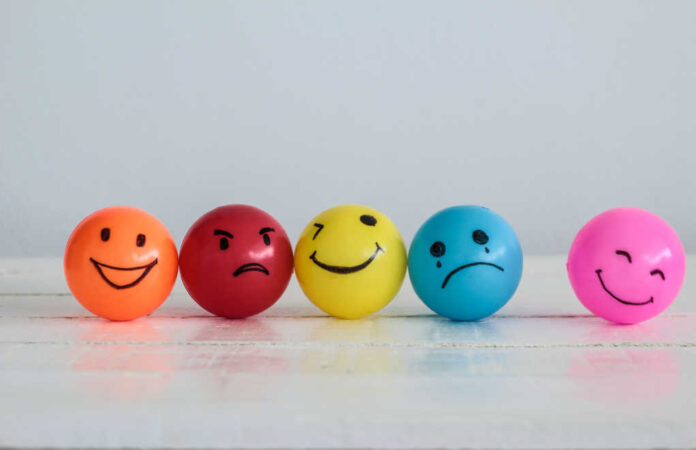
Your emotions are a natural and powerful part of who you are. They can be a source of strength and inspiration or become a liability if you can’t control them.
Uncontrollable emotions can lead to problems at work, in personal relationships, and every other area of life.
Even if you feel like you have reasonable emotional control most of the time, there are likely times when they get the better of you.
Increasing Your Emotional Awareness
One of the first steps to gaining a healthier relationship with your emotions is to become more aware of them.
An easy way to start is to keep a physical or digital notebook to track your emotions. Each day, as often as you can, spend a moment to check in with yourself and note how you’re feeling. Name the emotion if you can, or describe it in a few words. Rate its intensity.
Notice what circumstances brought you here.
If you don’t feel comfortable writing your moods and emotions down, even just mentally checking in with yourself throughout the day can be very helpful.
The important thing is to get in the habit of regularly checking in with your emotions.
Notice them while they’re happening. Reflect on your emotions after they’ve passed. Over time, you’ll become more aware of your patterns and be able to prepare for future occurrences.
Developing Harm Reduction Strategies
Once you’re more aware of your emotions, you can start to manage them more effectively.
This doesn’t mean trying to suppress or minimize your emotions but rather learning how to express them healthily.
If you feel angry, try to find an outlet for that anger that doesn’t involve harming yourself or others. Try doing an intense exercise routine, kneading bread dough, or playing music.
If you feel sad, it’s OK to cry or take some time to yourself. But again, try to find a way to express that sadness that doesn’t involve self-destructive behaviors. Write, paint, listen to music or spend time with supportive people.
The goal here is to find a way to express your emotions without causing harm. This also applies to positive emotions. Some people tend to overindulge or become reckless when feeling happy or excited. You can experience these emotions without letting them spiral out of control.
Changing Your Mood
The next step is to learn how to change your mood when you need to. It’s rarely a good idea to stay in a negative emotional state for too long.
Again, this isn’t about suppressing your emotions. It’s about accepting your current state and then consciously making an effort to change it.
One of the simplest, easiest, and most effective ways is to take some deep, full breaths. Observe any tension in your muscles and relax them as you breathe.
If your mind is racing, focus on a specific object in the room or repeat a mantra or affirmation to yourself.
Go for a walk, shower, or do something else that gets you out of your current environment.
Then, with a fresh perspective, you can reappraise the situation and find yourself transitioning into a new and better mood.






















